6th, June 2019 | Oh Jinna
Myopia Causes Problems that Affect Your Life

What is Myopia?
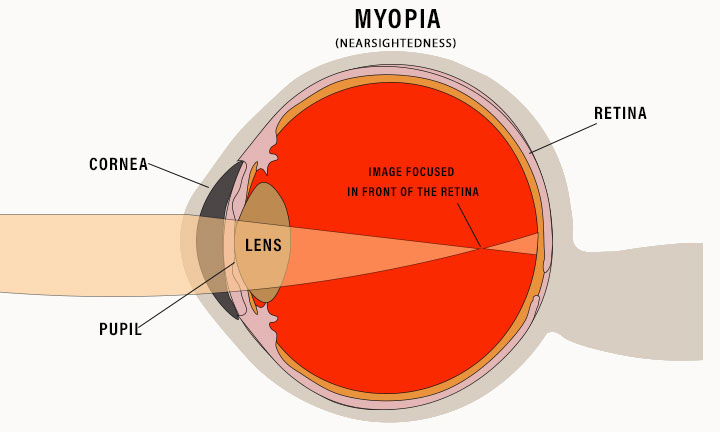
Myopia, commonly known as nearsightedness, is an eye condition that occurs when your eyes cannot bend light correctly. As a type of refractive error, myopia causes a person’s vision to be blurry when looking at distant objects. Basically, myopia affects a large number of people all over the world.
A study by the journal Ophthalmology predicts that there will be at around 4.5 million people with myopia by 2050.
In other words, we could expect that approximately 49 percent of our world population will suffer from myopia in the near future.
How does myopia affect your vision?
Myopia causes blurring of distant objects or poor quality of long-range vision. The quality and range of your vision depends on the degree of your refractive error.
When you have myopia, you can clearly see things that are near you, but things get blurry as they get further from your sight.
That is why myopia is commonly known as nearsightedness, which means that your vision is only effective when objects are near.
Myopia is becoming more common in the United States
According to a study by the American Medical Association, the estimated prevalence of myopia in the US in the years between 1999-2014 is 16 percent higher than it was in 1971-1972.
Which means that more and more people in the US are affected by short sightedness.
Today, there could possibly more people who are affected by myopia. Which prompts more research to determine the main causes of myopia and how it develops in the first place.
A better understanding of this refractive error can definitely bring cost-effective solutions that can help everyone who suffers from nearsightedness.
What Causes Myopia or Nearsightedness?
So what exactly causes myopia? Your eyes can’t be nearsighted without a reason, right? And that is exactly correct.
Myopia or nearsightedness the shape of your eyeball is not round enough. To be exact, the front and back part of your eyes are unusually longer.
Which results with your eyes having poor long distance vision. In addition, you can also get myopia when the shape of you cornea is too curved or if the lens is just thicker than normal.
If you have myopia, reading a book, writing, or using a computer won’t be that much of a problem.
In fact, you’ll likely have no problem doing anything that involves close-range vision. But you’ll definitely have problems with activities like archery or sightseeing.
Generally, myopia causes problems when you participate in activities that require long distance vision.
Are you nearsighted? Do you have myopia?
Most people don’t know that they are nearsighted until they notice the symptoms and effects of myopia.
As mentioned above, myopia is a refractive error that limits your long-distance vision. Meaning, distant objects don’t appear clear and detailed to you.
Read this article and find out if your vision is still in top shape: 12 Subtle Signs Your Vision is Getting Worse.
Normally, you can easily detect nearsightedness by comparing your eyesight to others.
Ask your friends and compare notes about the quality and effectivity of your vision. But if you really want to make sure, here are the most common signs of myopia.
Myopia Causes Blurry Vision
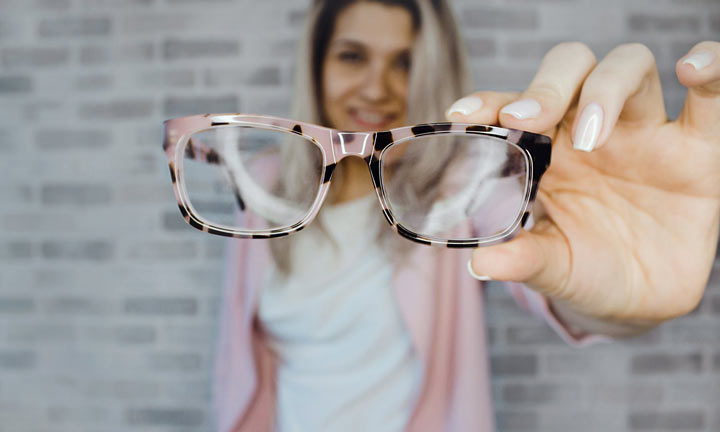
The primary indicator that you have myopia is an inability to see distant objects. If you can’t see the details of objects that are far from you, then you might be nearsighted.
Normally, objects become blurry when people with myopia are far away. Do you notice yourself self squinting your eyes when you read sign boards?
Normally, people with myopia tend to squint their eyes to help make distant objects a little more visible. However, this is method is not as effective as getting eyeglasses or contact lenses.
Nearsightedness and Screens

Since nearsighted people can’t clearly see distant objects, they’ll usually put their face closer to television or computer screens.
The light from screens can be damaging to the eyes, so you should be mindful and keep a safe distance especially when working on your computer.
Do you find yourself leaning closer to your computer screen more than others? Do you normally sit closer television compared to others? If so, then you most likely have myopia.
Myopia Causes Headaches
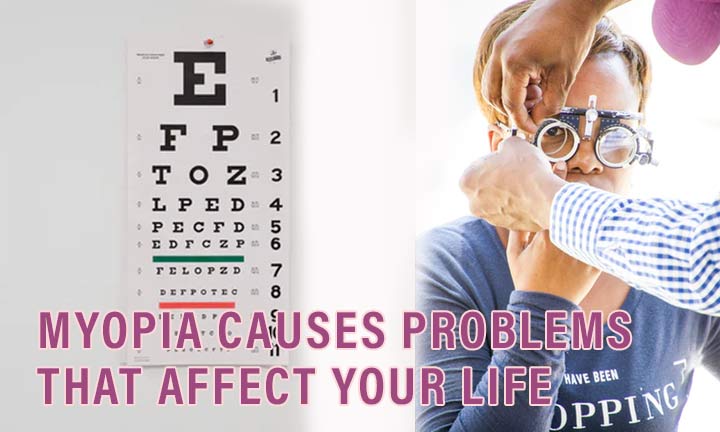
Myopia causes headaches, and they can get really bad. The worst part of having undiagnosed myopia is the non stop headaches.
People who don’t know that they are nearsighted can feel constant headaches and eyestrain without realizing the reason.
When this happens, you might think that it’s a severe complication may be causing your pain, but a simple eye exam can easily determine if you have myopia.
And if you do, your eye physician will simply hand you a prescription for eyeglasses or contact lenses.
Can you fix myopia or nearsightedness?
Myopia causes a lot of discomfort and inconvenience, but thankfully, it’s a common eye problem that is easy to correct. So if you have myopia, don’t worry because you have three safe options to correct your vision.
Eyeglass
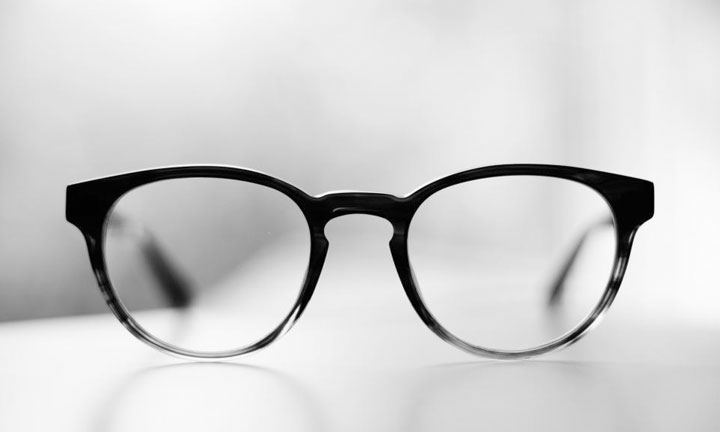
If you can’t see distant objects, a pair of eyeglasses can solve your problems. For myopia, you need lenses called “minus power lenses” or “minus lenses”. This type of lens is shaped in a concave manner so the lens has a thick edge but a thinner center.
The lens for myopia is specifically designed to reduce the focusing ability of your eye. As a result, the light that goes into your eye is focused in a manner that corrects your vision, thus you see distant objects more clearly
Contact Lenses
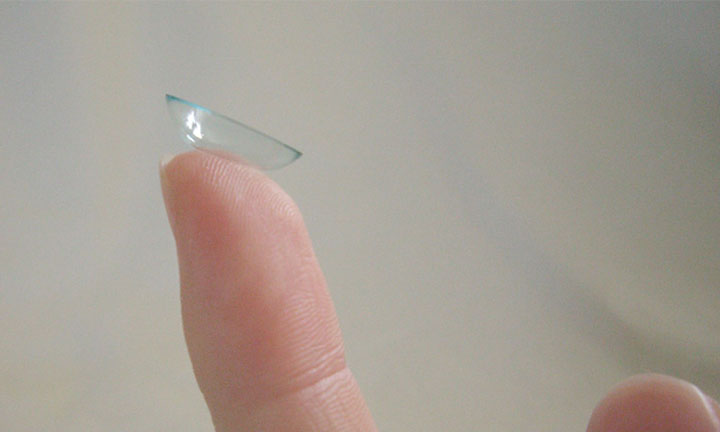
If you don’t want to wear eyeglasses, then don’t worry because contact lenses can easily correct your nearsightedness. Just go to a trusted eye physician and get yourself a contact lense prescription.
Find out how to read your contact lens prescription: Understand Your Contact Lens Prescription.
Take note, your contact lens prescription is different from your eyeglass prescription. So, if you’re planning to get contact lenses for you myopia, you should definitely get your eyes checked and prescribed first.
Refractive Surgery
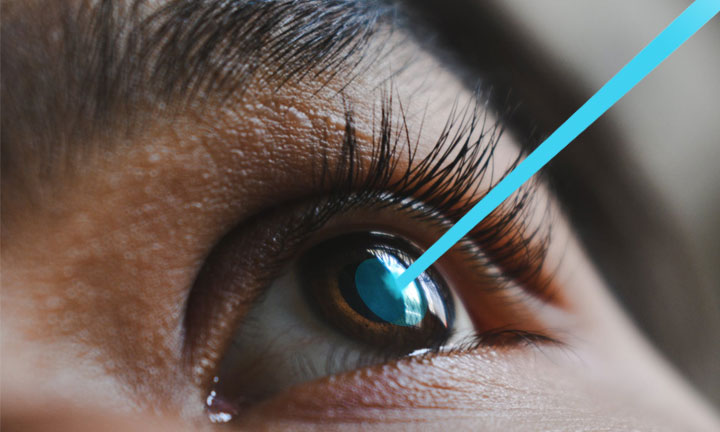
Refractive surgery is a surgical procedure that corrects the focusing capability of your eye. Basically, doctors can correct your myopia by reshaping the clear rounded arch of your eye called the cornea. One of the most common refractive surgery is called LASIK or laser-assisted in situ keratomileusis. With LASIK, doctors use a laser to correct the shape of your cornea.
If you have myopia, doctors can reduce the focusing power of your eye by decreasing the part of your cornea that is too steep. Thus, you’ll be able to see distant objects with clarity and detail.
Myopia and Other Eye Problems
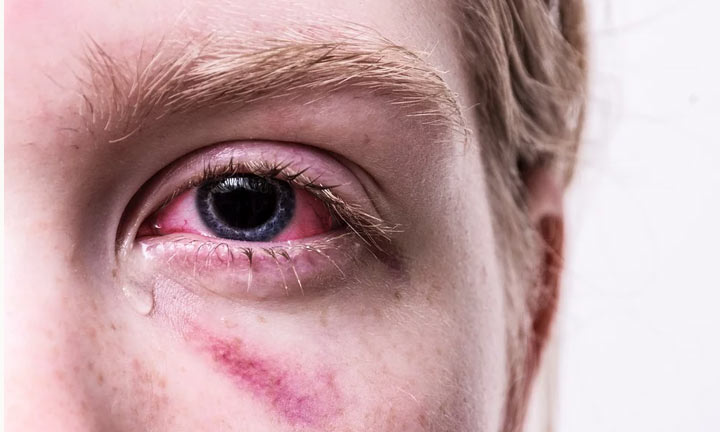
Aside from the limited visual capabilities that come with nearsightedness, some serious eye conditions can also be associated with myopia. Although myopia causes problems that can lead to more serious complications, serious eye conditions are more related to people with higher degree of myopia.
Learn more about eye conditions that could lead to serious problems: 5 Common Eye Problems That We Usually Miss.
Cataracts
According to a study by the Catholic University of Korea School of Medicine, cataracts develop earlier for people who have high myopia compared to people with normal eyes.
So if you have myopia, you have a slightly higher chance of developing cataracts. But don’t worry, just keep your eyes healthy and get checked if you feel any problems with your vision.
Find out the symptoms of cataracts: Signs You Might Have Eye Cataracts.
Generally, cataracts occur when your eyes start to develop cloudy areas that degrade your vision. Although it is not life threatening, severely untreated cataracts can lead to vision loss and blindness. Unless you want to lose your vision, you should not take cataracts lightly.
Glaucoma
Recent studies show that both mild and moderate myopia are linked to more chances of developing glaucoma. Glaucoma is an eye condition that damages the eye due to unusually high pressure in a person’s eye.
The symptoms of glaucoma include eye pain, dizziness, headache, blurry vision, halos appear when you look at lights, red eyes, patches of blind spots in your vision, and tunnel vision.
If you’re experiencing most of the symptoms, it is best that you see a doctor as soon as you can. If not treated, glaucoma can lead to vision loss or blindness.
Retinal Detachment
Myopia causes daily problems like difficulty watching distant objects, screens, and scenery, but it is also associated with more serious problems like retinal detachment.
According to a study by the American Journal of Epidemiology, people with myopia are more prone to retinal detachment. The results of the study shows that people with mild myopia are four times more prone to retinal detachment than people without myopia.
In addition, people who have medium to high myopia are ten times more prone to retinal detachment.
Find out how to keep your eyes strong and healthy: Good Habits to Preserve Your Eyesight Over Time.
But don’t worry, just because you have myopia doesn’t mean your world is going to end. As scary as the odds of eye problems may be, myopia causes more minor inconvenience than major eye problems.
As long as you keep watch of your vision and health, there’s not much to worry about. However, if you do feel or notice any alarming symptoms, then you can always get your eyes checked by a doctor.
Remember, the earlier you detect these problems, the easier they are to deal with.
References:
5 Common Eye Problems That We Usually Miss
Understand Your Contact Lens Prescription
Signs You Might Have Eye Cataracts
Global Prevalence of Myopia and High Myopia and Temporal Trends from 2000 through 2050
Increased Prevalence of Myopia in the United States Between 1971-1972 and 1999-2004
Clinical characteristics and outcomes of cataract surgery in highly myopic Koreans
The incidence and rate of rhegmatogenous retinal detachment seven years after cataract surgery in patients with high myopia

Leave a Reply
You must be logged in to post a comment.